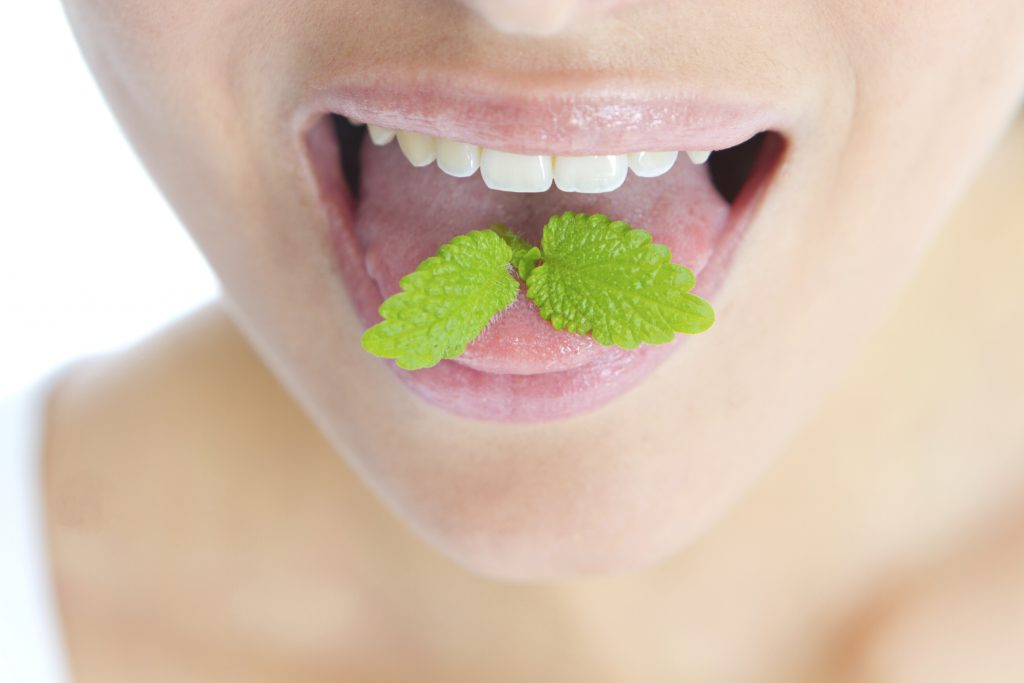
Have you ever heard of the medical condition xerostomia? Dry mouth is a condition that may be a side effect of various medications, salivary gland problems, or continuous breathing through the mouth. But this isn’t the only symptom. It can also cause bad breath. Below are five easy ways to keep your breath fresh all day:
Stay hydrated. If you can’t brush your teeth after a meal, drinking a lot of water can help speed up the process of cleaning harmful bacteria and debris from between your teeth, by rinsing your mouth out as well. Drinking milk can even help deodorize some offensive breath odors.
Keep drinking a cup of joe to a minimum. It may be tasty, but coffee is a tough smell to get off the back of your tongue. If you feel like you can’t function without it, don’t quit completely. Instead, keep the intake to a minimum and have a toothbrush or sugar-free gum handy for afterwards.
Stave off tobacco products. Cigarettes, pipes, and snuff can not only make you more susceptible to health issues, but smoking gives people horrible breath. Keeping them out of your life will have multiple benefits.
Cut back on alcohol. Alcohol can lead to a dry mouth. Too much beer, wine, and hard liquor can make your breath smell less than fresh for up to eight to 10 hours after you finish drinking.
Chew sugarless gum. Wait for a good half hour after a meal before popping in a piece of sugarless gum. It can help with saliva flow, cleaning cavity-forming bacteria from your mouth before they can do any damage. Gum that’s 100% xylitol-sweetened can help reduce cavities, so feel free to indulge in this sweet treat after a good meal.
For more information about xerostomia, call Dr. Pliev in Ottawa, ON at 613-235-5348 or visit www.ottawadentistryonkent.com.
Dr. Konstantin Pliev proudly serve patients from Ottawa and all surrounding areas.

